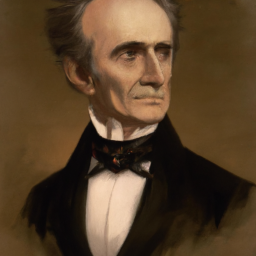April 23 marks the birthday of James Buchanan, the man regarded by many historians as one of the worst—if not the worst—Presidents of all time. Buchanan served as the 15th President of the United States, from 1857 to 1861, during a time of great sectional tensions that would ultimately lead to the Civil War.
Born in Pennsylvania in 1791, Buchanan was a successful lawyer and politician before assuming the presidency. He served as a congressman, senator, and ambassador to Russia and the United Kingdom before being elected President in 1856. Buchanan was the last president to be born in the 18th century and the only one to remain a bachelor throughout his life.
Buchanan's presidency was marked by several controversial decisions that are now seen as contributing factors to the onset of the Civil War. One of the most significant was the Dred Scott decision, in which the Supreme Court ruled that African Americans could not be considered citizens, and therefore could not sue for their freedom. Buchanan supported the decision and believed it would help resolve the issue of slavery in the territories. However, the decision only served to further inflame sectional tensions.
Another controversial decision was the Kansas-Nebraska Act, which allowed settlers in the territories to decide for themselves whether to allow slavery. This effectively repealed the Missouri Compromise of 1820, which had prohibited slavery in the territories north of the 36°30' line. The act led to violent clashes between pro-slavery and anti-slavery settlers in Kansas, known as "Bleeding Kansas."
Buchanan's handling of the secession crisis in 1860-61 has also been criticized. He believed that secession was unconstitutional but also believed that the federal government had no power to prevent it. He did little to prepare for the possibility of war or to prevent Southern states from seceding. When he left office in 1861, seven states had already seceded and formed the Confederate States of America.
Buchanan's presidency was also marked by controversy within his own party, the Democratic Party. He faced opposition from the "Young America" faction, which wanted to expand American influence overseas, and from the "Free Soil" faction, which opposed the expansion of slavery into the territories. Buchanan was unable to unite the party, which would split in 1860 and contribute to the election of Abraham Lincoln.
Despite his controversial presidency, Buchanan continued to be active in politics after leaving office. He supported the Union during the Civil War, although his sympathies were with the South. He also wrote a memoir defending his presidency and arguing that he had done all he could to prevent the war.
Today, Buchanan is remembered as one of the worst Presidents in American history, primarily because of his handling of the secession crisis and the events that led to the Civil War. However, his presidency also reflects the deep divisions and tensions that existed in American society in the years leading up to the war.
